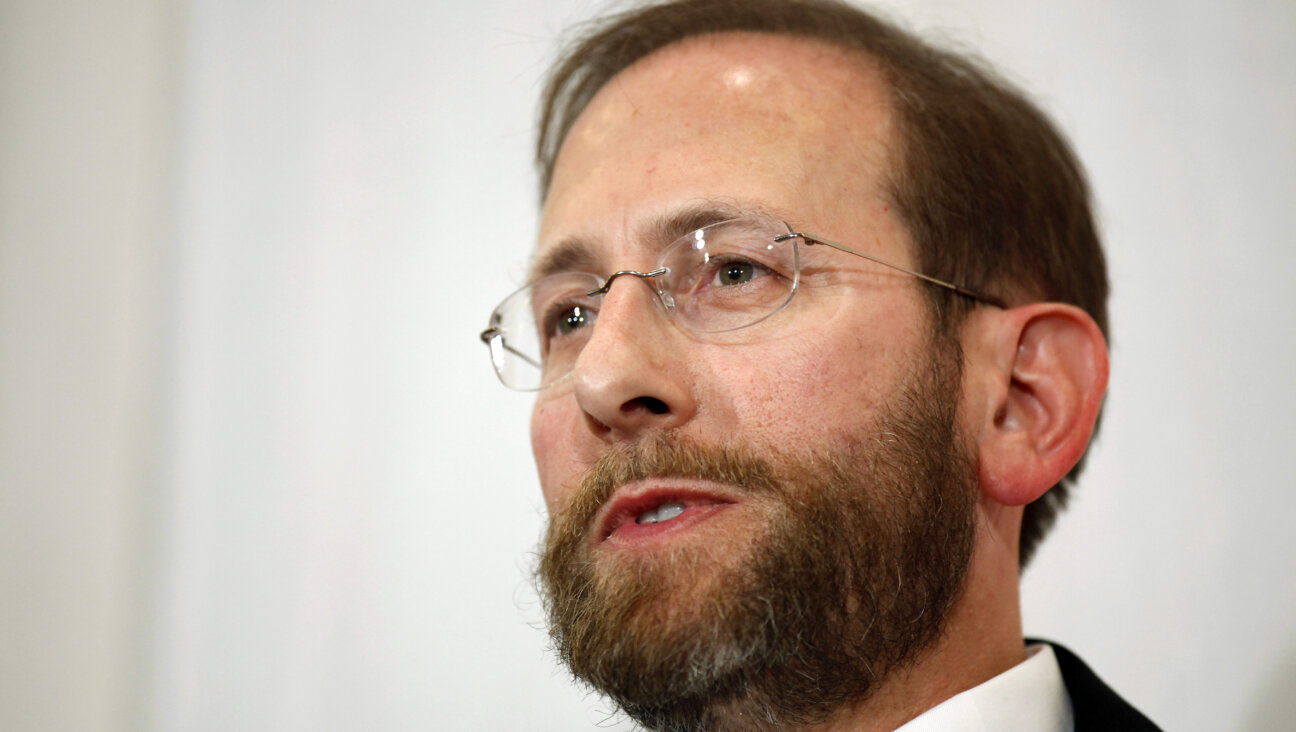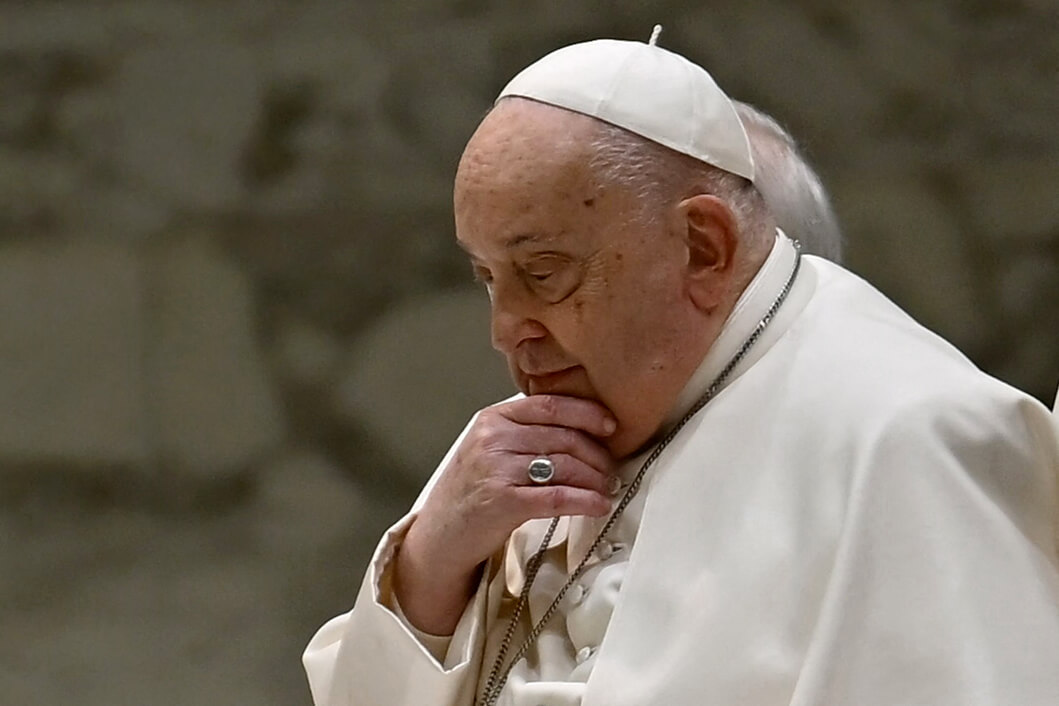Charter School Effort Opens Rift on Civic Values
The recent announcement that mega-philanthropist Michael Steinhardt is backing an effort to bring a Hebrew-language charter school to New York — together with talk of a possible national network of similar institutions — seems certain to revive debates about whether such schools violate the separation of church and state. But the proposal raises a second, more elemental question: Would the schools serve to sever young Jews from the American mainstream and, in the process, betray the underlying purpose of public education?
In the time since the first Hebrew charter school, the Ben Gamla Charter School, opened in Hollywood, Fla., in August 2007, a consensus on the church-state issue seems to be emerging. Proponents argue that if the schools are to accept all comers and if their curricula are tailored so as to avoid religion — both points to which the Steinhardt team appears to have given scrupulous attention — the new institutions will pass constitutional muster.
But observers say the possibility of a national network of Hebrew charter schools could signal a fundamental shift in Jewish attitudes toward religion, civic values and public education — attitudes that have historically lain at the heart of American Jewish identity.
“Jews had a strong need to integrate into America and a strong interest in a tolerant, unbiased America,” said Steven M. Cohen, a professor of sociology at Hebrew Union College-Jewish Institute of Religion. “The public schools were seen as vehicles to do both — to make Jews American, and to make America a tolerant place.”
The roots of that attitude toward public education extend back more than a century. Stephan Brumberg, a professor of education at Brooklyn College, said that as Jews attempted to assimilate into the America of the mid-19th century, they embraced a split between their education as Americans in the public schools and their education as Jews in synagogues.
“It was seen as part of their effort to separate the ethnicity of Jews from the religion of Jews. So the public schools were perfect. They provided training and inclusion into American culture,” Brumberg said.
But the prospect of Hebrew charter schools now suggests a new model. Advocates of such schools — including Steinhardt, Ben Gamla founder Peter Deutsch and others — have pitched them to the Jewish community as a means to use public funds to help make Jews more Jewish.
Already, that strategy is exposing fault lines in the Jewish world over whether Jewishness and public education can mix safely. In an interview with the Forward, Rabbi Eric Yoffie, president of the Union for Reform Judaism, argued that widespread Hebrew charter schools would be “a disastrous approach.” One part of his critique was that the charter school advocates’ premise that they can separate Jewish culture from Jewish religion is unrealistic and unsustainable. But Yoffie also took aim at the
notion of using public charter schools for private identity-building.
“There’s a certain fundamental dishonesty about the whole enterprise,” Yoffie said. “We have this bizarre phenomenon where people promoting this have an agenda that says, ‘Let’s build Jewish identity,’ but they can’t talk about it. They have to deny that it’s their motivation.”
Others, however, have argued that Jews are simply moving with the times. As the charter school movement has grown, it has intersected with America’s growing interest in multiculturalism, spawning Greek, Hispanic and Arabic language and culture schools, to name a few. “If the Greek school and Chinese school and French school are okay, why start the debate about balkanization with the Hebrew school?” said Abraham Foxman, national director of the Anti-Defamation League.
In a sense, Hebrew charter schools reflect a very old model of religious groups educating their own. Jonathan Sarna, a history professor at Brandeis University, notes that before American public education was introduced on a large scale, Jews, like other religious groups, funded most of their community’s educational efforts, often with subsidies from the state. When public schools were introduced, religious groups were forced to make a choice: To a large extent, Sarna said, Jews embraced public schools, for some very practical reasons.
“The best thing about the public school system, then and now, was that it was free — it was supported by tax dollars,” Sarna said.
Sarna added that once Jews chose to embrace the public school system, they also took on the effort of ensuring that the schools would be, as Julius Freiberg, an influential 19th century Jewish lay leader put it, “temples of liberty,” untainted by sectarianism. Thus, it was hoped, the schools would create an American civic culture where Jews and Protestants, rich and poor, and anyone else could mix on equal terms.
That ethos hasn’t disappeared; Hebrew charter schools, like all public schools, must be open to all comers (though many expect they will attract mostly Jews). But as Deborah Dash Moore, a history professor at the University of Michigan, points out, Jews have tried before to use the public schools to inculcate Jewish values, as in the 1930s, when Zionist educators in New York introduced Hebrew-language instruction into public schools. But those attempts never gained widespread appeal and were far outweighed in influence by vigorous efforts on the part of American Jewish organizations to rid the public schools of any sectarian influence. These efforts culminated in a series of Supreme Court decisions after World War II that eliminated compulsory prayer and Bible study in public schools.
Still, there have been signs of a shift away from the Jewish notion of public schools as the training ground for good Americans. That shift, too, has deep roots. As far back as the 1930s, Sarna said, Orthodox Jews began to make a concerted effort to send their children to Jewish day schools. That effort gained significant momentum in the 1950s with the emergence of a national network of day schools. Eventually, Orthodox Jews pulled out of public schools almost entirely.
But among non-Orthodox Jews, the move toward parochial education has been far less pronounced. Non-Orthodox day school enrollment has grown steadily in recent years — to nearly 42,000 in 2004 from about 29,000 in 1993, according to statistics compiled by the Avi Chai foundation. But day schools have never come to predominate among non-Orthodox Jews. Though Steinhardt was once a day school booster, he has recently grown disillusioned and has taken to citing a Steinhardt Social Research Institute at Brandeis study, which found that only 3% of non-Orthodox children attend day schools. Though observers have debated the precise statistic, none has denied the fundamental fact that non-Orthodox day schools haven’t become the norm, and it is unlikely that they will.
Thus, Hebrew charter schools have emerged as a new potential strategy for building Jewish identity, as they are both cheaper and less parochial than day schools But some have argued that this strategy is, if not illegal, then at least inappropriate. At this year’s plenum of the Jewish Council for Public Affairs, an umbrella group that convenes the major Jewish organizations, the San Antonio Jewish Community Relations Council proposed to amend a resolution on charter schools to condemn language and identity charter schools as inimical to fostering a harmonious society. When the amendment was proposed for debate, it was met with silence. Ultimately, it died.
“There’s nothing wrong with preserving ethnic and cultural identity, but it’s not the job of the state to do that,” said Michael Stern, chairman of the San Antonio JCRC, speaking on his own behalf.
In the end, the debate on Hebrew charter schools may hinge on individual notions of how best to strike the delicate balance between being an American and being a Jew.
“I suspect that for many people, it may be difficult,” Sarna said, “because it may be good for us as Jews but bad for us as Americans.”
The Forward is free to read, but it isn’t free to produce

I hope you appreciated this article. Before you go, I’d like to ask you to please support the Forward.
Now more than ever, American Jews need independent news they can trust, with reporting driven by truth, not ideology. We serve you, not any ideological agenda.
At a time when other newsrooms are closing or cutting back, the Forward has removed its paywall and invested additional resources to report on the ground from Israel and around the U.S. on the impact of the war, rising antisemitism and polarized discourse.
This is a great time to support independent Jewish journalism you rely on. Make a gift today!
— Rachel Fishman Feddersen, Publisher and CEO
Support our mission to tell the Jewish story fully and fairly.
Most Popular
- 1

Opinion The dangerous Nazi legend behind Trump’s ruthless grab for power
- 2

Opinion I first met Netanyahu in 1988. Here’s how he became the most destructive leader in Israel’s history.
- 3

Opinion Yes, the attack on Gov. Shapiro was antisemitic. Here’s what the left should learn from it
- 4

News Who is Alan Garber, the Jewish Harvard president who stood up to Trump over antisemitism?
In Case You Missed It
-
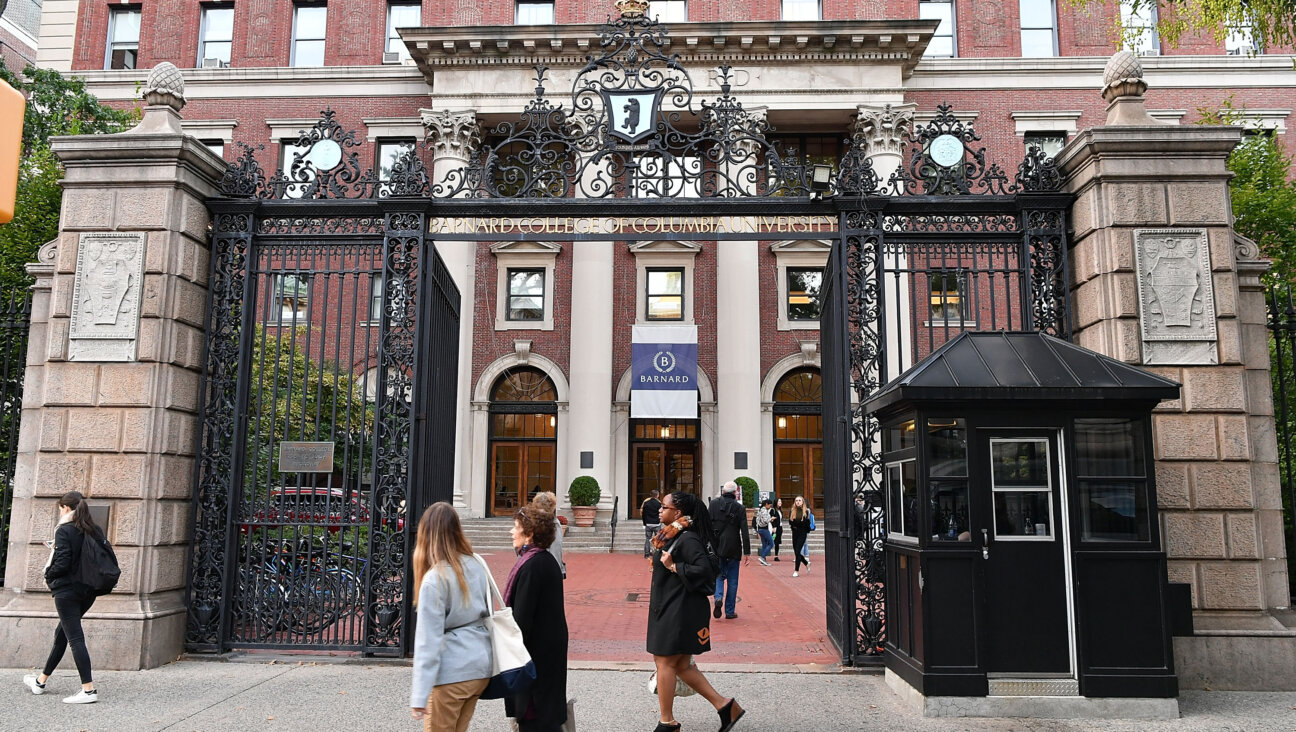
Fast Forward A federal agency survey reportedly asks Barnard employees if they’re Jewish
-
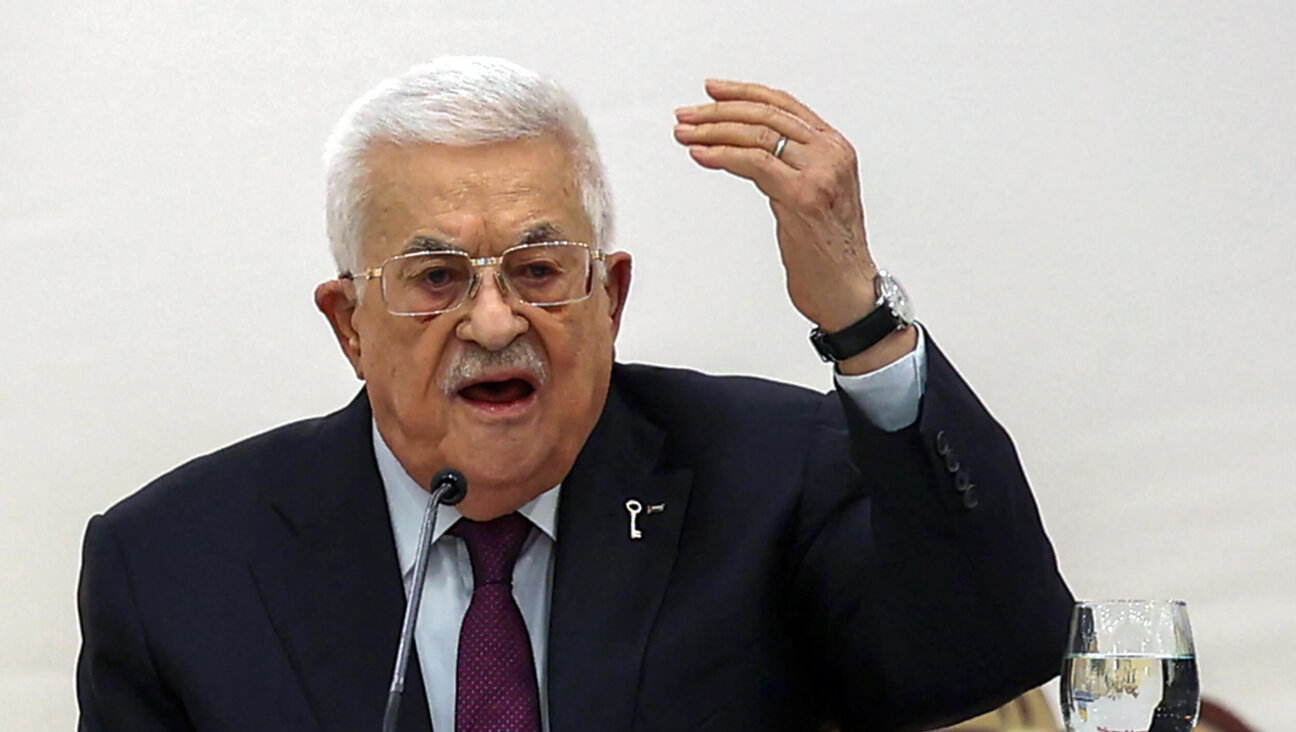
Opinion A Palestinian leader just gave Trump an unprecedented opening to pursue peace
-

Fast Forward NIH bans grants for schools that boycott Israeli companies
-
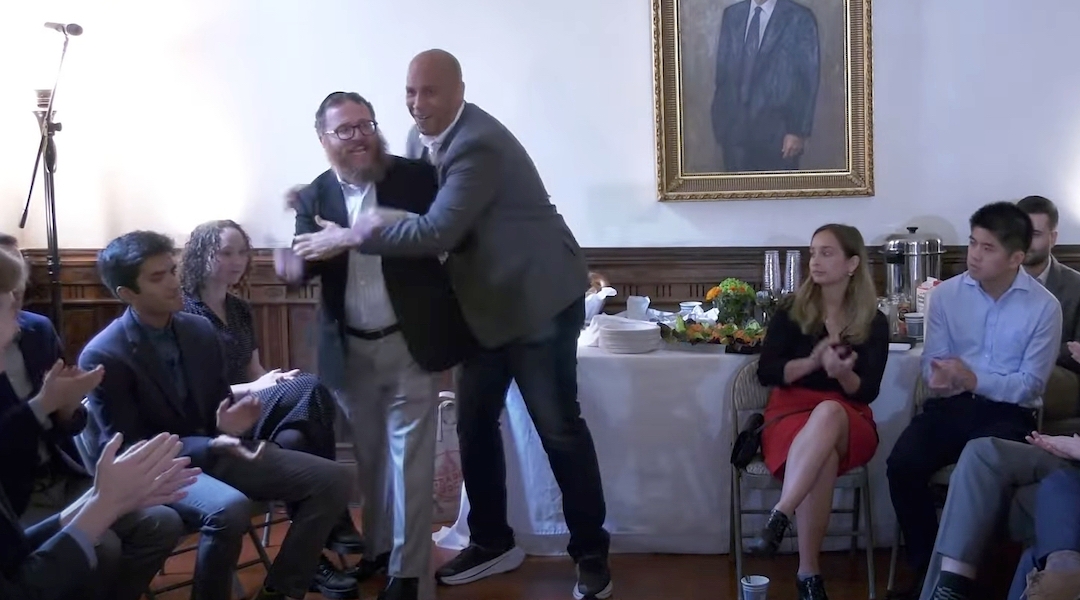
Fast Forward An elite Jewish society at Yale fractures over its director’s embrace of Itamar Ben-Gvir
-
Shop the Forward Store
100% of profits support our journalism
Republish This Story
Please read before republishing
We’re happy to make this story available to republish for free, unless it originated with JTA, Haaretz or another publication (as indicated on the article) and as long as you follow our guidelines.
You must comply with the following:
- Credit the Forward
- Retain our pixel
- Preserve our canonical link in Google search
- Add a noindex tag in Google search
See our full guidelines for more information, and this guide for detail about canonical URLs.
To republish, copy the HTML by clicking on the yellow button to the right; it includes our tracking pixel, all paragraph styles and hyperlinks, the author byline and credit to the Forward. It does not include images; to avoid copyright violations, you must add them manually, following our guidelines. Please email us at [email protected], subject line “republish,” with any questions or to let us know what stories you’re picking up.








